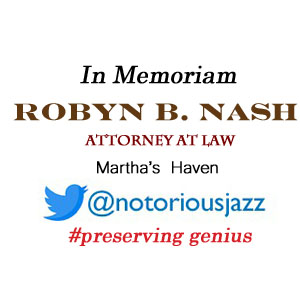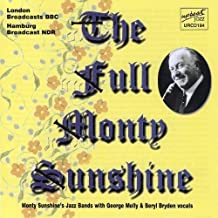
Daily Dose Of Jazz…
Monty Sunshine was born on April 9, 1928 in Stepney, London, England. Along with Lonnie Donegan, Jim Bray and Ron Bowden, he formed the back line of what was the embryo Chris Barber Band. First trumpet Ken Colyer and the original 1953 band took the Colyer name until he left. Pat Halcox took over the spot and the band formally adopted the Chris Barber Jazz Band as its title.
The band quickly made an international reputation following their inaugural tour of Denmark, before their professional debut in the United Kingdom. Sunshine stayed with the band for several years, until he left in 1960, to be replaced by Ian Wheeler. He formed his own band, staying true to the original six-man line up, whilst Barber expanded his band membership to seven, then eight and finally to eleven.
Sunshine returned to play a reunion concert with the original Chris Barber Band at the Fairfield Halls, Croydon in 1975. Well received, the band reformed for an international reunion tour in 1994 and he retired from music around 2001. His discography is extensive, and compact discs have been issued of recordings with Colyer and Barber, as well as with his own band.
Clarinetist Monty Sunshine, known for his clarinet solo on the track Petite Fleur, passed away on November 30, 2010 at the age of 82.
More Posts: bandleader,clarinet,history,instrumental,jazz,music
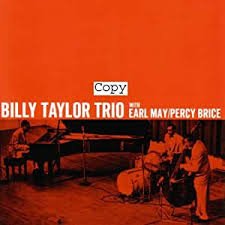
Daily Dose Of Jazz…
Kamil Běhounek was born March 29, 1916 in the Southern Bohemian section of Blatná, Czech Republic. An autodidact on accordion, having learned to play by imitating recordings and BBC broadcasts, he studied law in Prague, Czech Republic and began performing in clubs. His first recordings on solo accordion date from 1936 and in the late 1930s he worked with the Blue Music Orchestra, Rudolf Antonin Dvorsky, Jiří Traxler, and Karel Vlach.
In 1943, he was forcibly compelled by the Nazis to go to Berlin, Germany where he created arrangements for the bands of Lutz Templin and Ernst van’t Hoff. Upon returning to Czechoslovakia in 1945, he used some of these arrangements for his own band. Kamil returned to Germany the following year and continued arranging for bandleaders Adalbert Luczkowski, Willy Berking, Heinz Schönberger, and Werner Müller.
He played with his own ensemble in Bonn, Germany and, after 1948, in West Germany for American soldiers’ clubs. Between 1968 and 1977, Běhounek recorded several albums of folk music, but continued to play swing with his own groups. He wrote an autobiography, Má láska je jazz (Jazz Is My Love), which was published posthumously in 1986.
Accordionist, bandleader, arranger, composer, and film scorer Kamil Běhounek, who also occasionally played tenor saxophone, passed away on November 22, 1983 in Bonn.
More Posts: accordion,arrangr,composer,film scorer,history,instrumental,jazz,music,saxophone
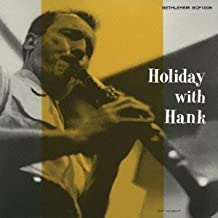
Daily Dose Of Jazz…
Hank D’Amico was born on March 21, 1915 in Rochester, NY and was raised in Buffalo, New York. He began playing professionally with Paul Specht’s band in 1936. That same year, he joined Red Norvo.
1938 saw Hank begin his radio broadcasts with his own octet before returning briefly to Norvo’s group in 1939. He played with Bob Crosby’s orchestra in 1940 and 1941, then had his own big band for about a year. He had short stints in the bands of Les Brown, Benny Goodman and Norvo again before working for CBS in New York.
D’Amico found time to play with Miff Mole and Tommy Dorsey, and spent ten years as a staff musician for ABC, before playing with Jack Teagarden in 1954. From that point he mostly worked with small groups, infrequently forming his own band. He played at the 1964 World’s Fair in New York with The Morey Feld trio.
Clarinetist Hank D’Amico passed away on December 2, 1965.
More Posts: bandleader,clarinet,hitory,instrumental,jazz,music
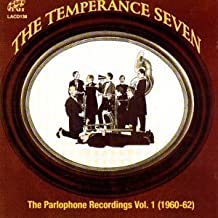
Daily Dose Of Jazz…
John R. T. Davies was born John Ross Twiston Davies on March 20, 1927 in Wivelsfield, Sussex, England. A trombonist, trumpeter and alto saxophonist, in the early 1950s he was a member of the Crane River Jazz Band led by Ken Colyer which spearheaded interest in the original New Orleans jazz style. Later he achieved chart success with the 1960s jazz revival band The Temperance Seven. The group’s recording of You’re Driving Me Crazy reached the top of the charts in 1961.
Considered by many as the world’s leading specialist in the art of sound restoration, he specifically focused on jazz and blues existing on pre-magnetic tape media such as shellac 78s. He was particularly interested in recordings from 1917 to 1940. Davies developed many methods for restoring old recordings and disliked modern techniques for removing surface noise.
While he appreciated attempts to clean up recordings and to create new versions of old recordings for modern audiences (e.g. the stereophonic remastered recordings by Robert Parker), in general he said he preferred remasterings which “keep everything and do as little as possible” to the original recording, and thought the remastering engineer should “Add nothing, take nothing away”. The presence of his name on the credit of a reissue is generally considered the mark of a quality product. He started his own record label called Ristic in the late 1940s which produced reissued recordings from 1949 to 1972.
Davies was always generous with his time and his collection and wanted it to be available for other people to use for research and reissues after his death. The Borthwick Archive at York University have accepted the entire collection and are housing it in ideal conditions, and making a transfer suite available so that his wish can be carried out. Information about the collection collated from the collection catalogue is also now available online from the University of York Digital Library and a small selection of the tracks have been made available to listen online.
Alto saxophonist and audio engineer John R. T. Davies, who specialized in restoring classic jazz records, passed away on May 25, 2004.
More Posts: audio engineer,history,instrumental,jazz,music,saxophone
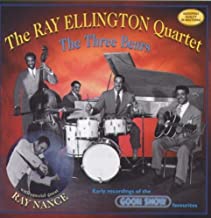
Daily Dose Of Jazz…
Ray Ellington was born Henry Pitts Brown on March 17, 1916 in Kennington, London, England, the youngest of four children of a Black father and Russian Jew mother. His father died when he was four years old, and was raised as a strictly Orthodox Jew, attending the South London Jewish School before entering show business at the age of twelve, when he appeared in an acting role on the London stage.
Ellington’s first break came in 1937 when he joined Harry Roy and His Orchestra as the band’s drummer, replacing Joe Daniels. His vocal talents were put to good use, from the time of his first session when he recorded Swing for Sale. Called up in 1940 he joined the Royal Air Force as a physical training instructor where he served throughout the war. He played in various service bands including RAF Blue Eagles.
Post military service, Ray resumed his career, fronting his own group, playing at The Bag O’Nails club. By early in 1947, he rejoined the Harry Roy band for a few months, later forming The Ray Ellington Quartet the same year. Specializing in jazz, he experimented with many other genres throughout the show’s history and his musical style was heavily influenced by the comedic jump blues of Louis Jordan.
His band was one of the first in the UK to feature the stripped-back guitar/bass/drums/piano format that became the basis of rock and roll. His band was also one of the first groups in Britain to prominently feature the electric guitar and use an amplified guitar produced and introduced by their guitar player, Lauderic Caton.
Drummer, singer, bandleader Ray Ellington, best known for his appearances on The Goon Show from 1951 to 1960, passed away of cancer on February 27, 1985.
More Posts: bandleader,drums,history,instrumental,jazz,music,vocal


